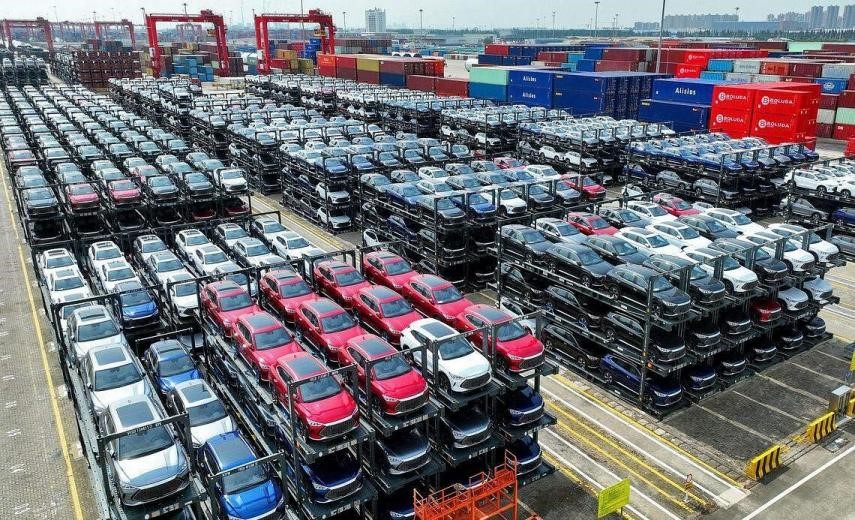Recently, the United States and the European Union have imposed tariffs on Chinese electric vehicles, a move that has attracted widespread attention. The U.S. has raised import tariffs on Chinese electric vehicles from 25% to 100%, and the European Union intends to impose temporary tariffs on electric vehicles made in China. This change has had a certain impact on China's electric vehicle industry, and it also reflects the competitive situation of the global electric vehicle market.

Chart: U.S. raises import tariffs on Chinese EVs from 25% to 100%
China's electric vehicle industry has grown significantly over the past few years, becoming one of the largest electric vehicle markets in the world. China's EV manufacturers have made important breakthroughs in technological innovation, cost containment and market share, not only gaining a foothold in the domestic market, but also beginning to expand into the international market. BYD Chairman Wang Chuanfu's remarks show that the rise of China's electric vehicle industry has attracted foreign attention and concern, which also proves China's competitiveness in this field.
However, foreign moves to impose tariffs on Chinese electric vehicles have also posed challenges for Chinese companies. High tariffs will increase the cost of Chinese EVs entering the international market, which may lead to higher prices, which will affect their market competitiveness. In addition, the increase in trade barriers may also have a certain impact on the supply chain and export business of China's electric vehicle industry.
For China's electric vehicle industry, meeting this challenge requires a multifaceted approach. First of all, enterprises should strengthen technological innovation and improve product quality and performance to enhance market competitiveness. Second, expand diversified markets, reduce dependence on a single market, and reduce trade risks. In addition, strengthening cooperation with international companies to jointly promote the development of electric vehicle technology and market expansion is also an important way to meet the challenges.
From a global perspective, the EV market will become increasingly competitive. Countries are increasing their support and investment in electric vehicles to achieve sustainable development goals. In this context, trade frictions and protectionist measures may have a certain impact on the development of the global electric vehicle industry. Therefore, the international community should strengthen cooperation, promote free trade and fair competition, and jointly promote the healthy development of the electric vehicle industry.
For China, the development of the electric vehicle industry is not only an opportunity for economic growth, but also an important measure to achieve energy transition and environmental protection. In the face of the challenge of raising foreign tariffs, China should adhere to an open and cooperative attitude, strengthen the competitiveness of its own industries, and actively participate in international cooperation to promote the prosperity of the global electric vehicle market.
In short, China's electric vehicle industry is facing challenges as well as achievements. By strengthening technological innovation, expanding markets and strengthening cooperation, China's electric vehicles are expected to continue to make breakthroughs in the global market and make greater contributions to the development of the global electric vehicle industry.






